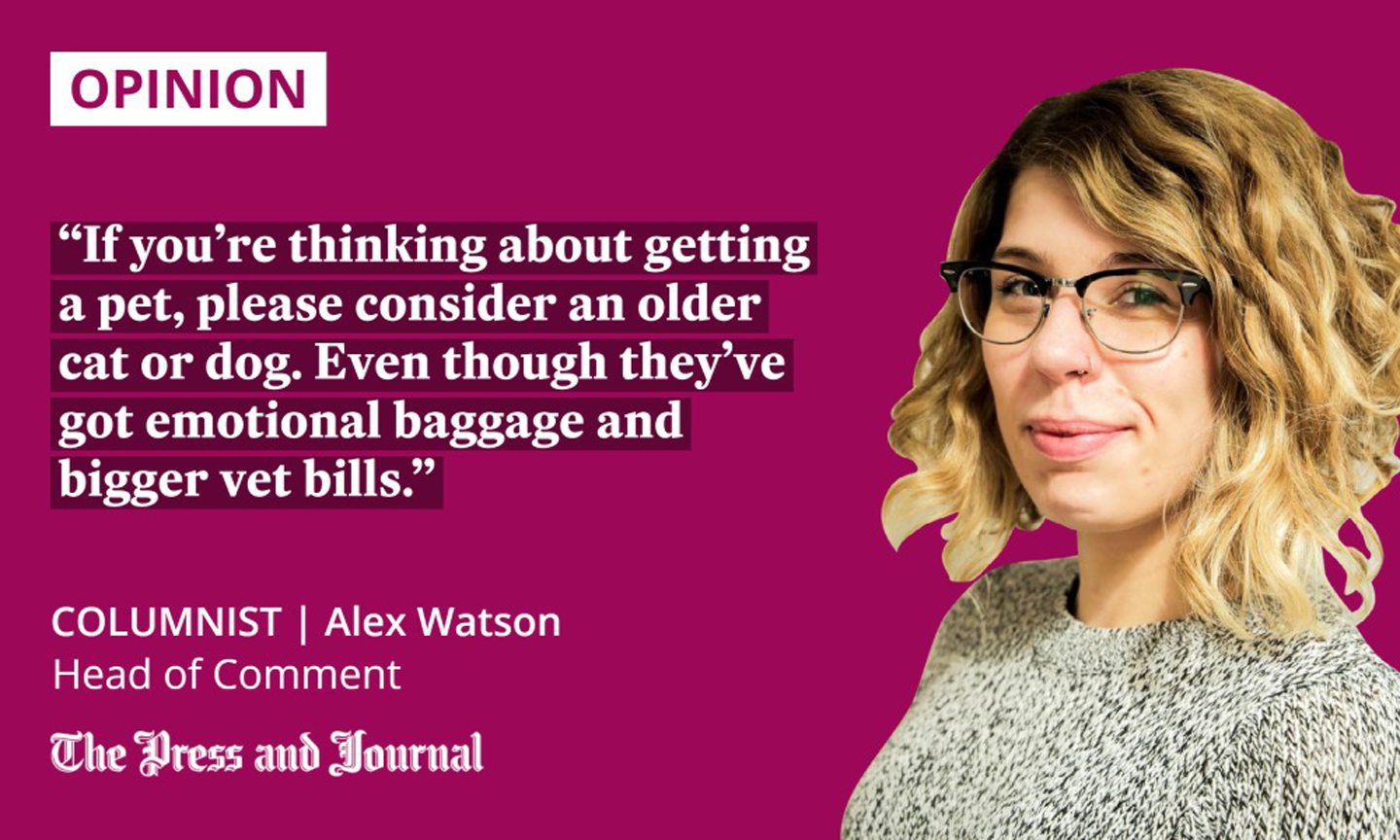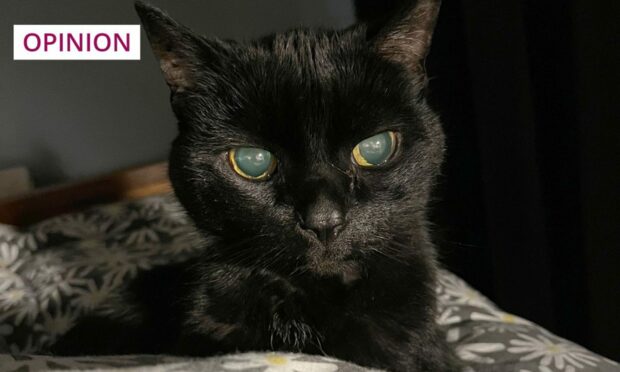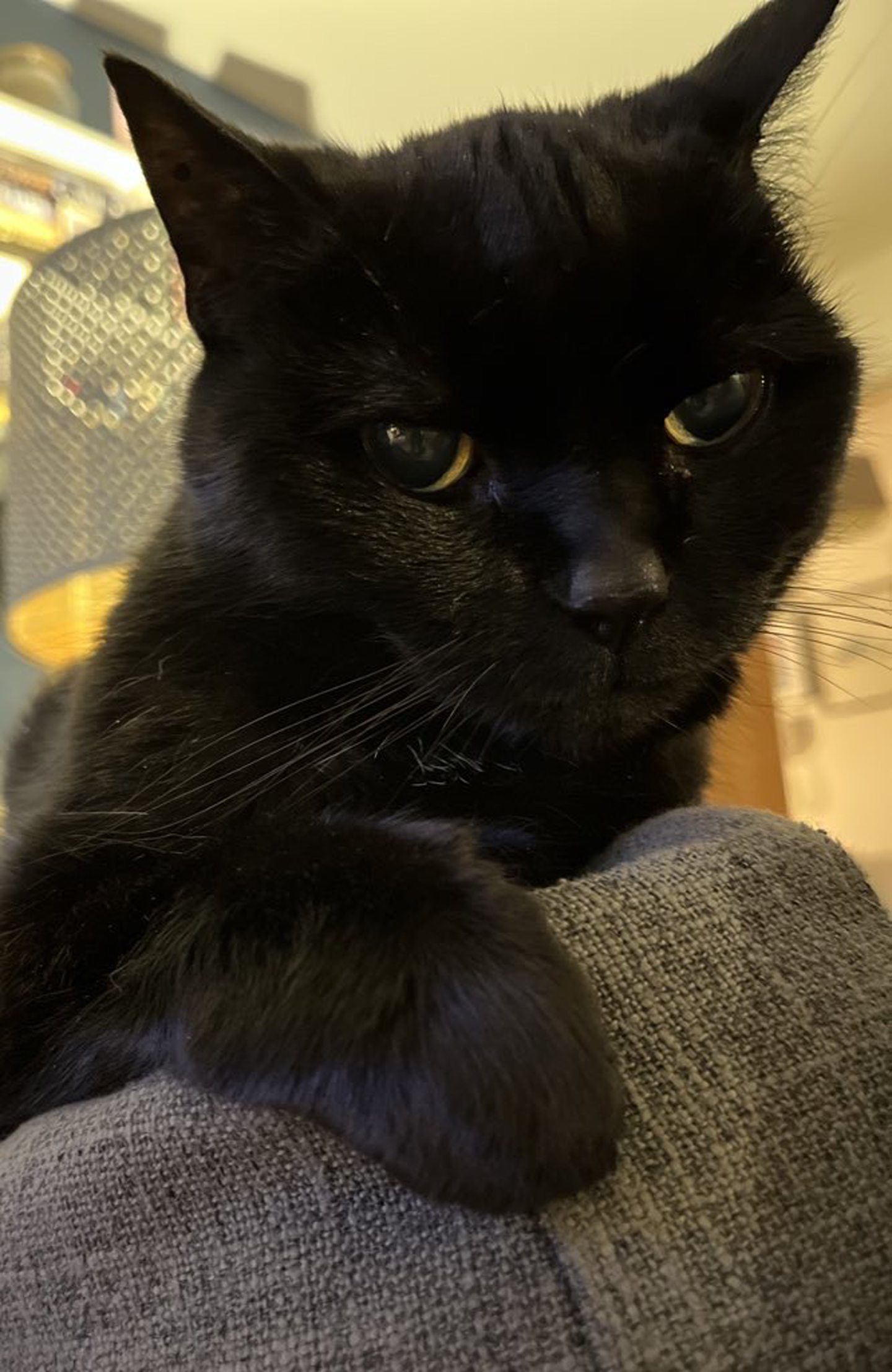The first time I was ever given the opportunity to write a newspaper column, I was told it could be on any subject I wanted. So, like a primary school pupil scrambling for a last-minute class talk topic, I decided to write about my cat.
Sherry had lived with us for just over a year by then. Overfed childhood goldfish and a shared, illicit university halls hamster aside, it was the first time I’d ever had a “proper” pet.
During a period where the Scottish SPCA was struggling with record numbers of cats looking for new owners, I wrote about how rewarding it felt to adopt an older animal and give her a safe, comfortable home. I wrote about how we’d literally taught an old cat new tricks, training Sherry to high five in exchange for a treat.
It was meant to be an uplifting piece that would tug on the heartstrings and encourage every reader to run out and scoop up a furry friend of their own from the nearest rescue shelter. But, reading my own words back now, I recognise how scared I was about losing Sherry; already bracing myself for the worst.
Almost as soon as we’d adopted her, we learned she had heart disease. A sympathetic vet told us that, realistically, Sherry probably only had months, possibly weeks, left to live.
So, while I was persuading other people to adopt, not shop, I was simultaneously realising that I had set myself up for almost immediate heartbreak.

We sobbed into Sherry’s black fur. She grumbled and begrudgingly wolfed down her new, healthy cat food, remaining vigilant (as always) in case someone accidentally left a sausage or some ice cream unattended.
Undeterred, she ate and slept fine, continued work on her personal projects (such as scratching the sofa to shreds) and could often be heard skittering across the wood floors as she let out regular bursts of energy. Entirely normal cat stuff.
More than a year after her “months to live” prognosis, it was clear to me that she was getting sharper, quicker and stronger, not winding down. With high fives mastered, she upped her game by learning to ring a bell when she was in the mood for a treat. (Perhaps unsurprisingly, the bell eventually had to be hidden.) And, though getting on in years, she was fast and ferocious when it came to playtime – I started calling her the feline Dennis Rodman, thanks to her ruthless defence and rebound skills.
I wish it could have been forever
In January 2021, another big scan at the animal hospital revealed that there had been no deterioration to Sherry’s heart in two years.
A miracle! We went home and lived happily ever after – for a good few years, anyway.
I wish it could have been forever. A tiny part of me wondered if Sherry would somehow keep defying all the odds indefinitely. But, when she was ready to go, last month, she let us know.
She died just short of reaching her 16th birthday, which put her at around the equivalent of 80 in human years. Not a bad innings for someone so ill.
Because, of course, it wasn’t a miracle that saved her – the heart disease didn’t disappear. We gave Sherry the medication she needed religiously, which helped, I’m sure. We didn’t let her eat sausages and Cornettos, which angered her, I’m sure. (But, ultimately, helped.)
My family, friends and I used to joke that it was sheer rage keeping her alive. She was notoriously feisty (to put it politely), but probably for good reason.
Her past was mysterious, but vets told us she’d suffered serious physical damage at some point, leaving her with a broken sternum and ribs that never healed properly. Her wary, flighty nature instantly made more sense.
That fear caused by trauma, whatever it was, never completely went away for Sherry. The lasting damage humans can do to animals is tragic; they don’t forget. Care, respect, unconditional love – those are the only tools we have to help them.
Grief is a fair trade for so much comfort and joy
I know that there are still lots of older cats and dogs exactly like Sherry waiting to be rehomed across Scotland, probably not coping all that well in a shelter environment. I know because I’ve been having a look online, every now and then.
I’m not quite ready yet but, eventually, I will set myself up for heartbreak all over again. And you should, too.
If you’re thinking about getting a pet, please consider an older cat or dog. Even though they’ve got emotional baggage and bigger vet bills. Even though, yes, at some point, it’s going to hurt when they leave you. It hurts now, as I write this. But nearly five years of comfort and joy was a fair trade.
Adopting a cat – that cat, in particular – was one of the best decisions I’ve ever made. Knowing that Sherry spent her golden years as the centre of attention, wanting for nothing (apart from Cornettos), helps ease the pain. The old cat who learned new tricks taught me a lot, too.
I’m glad now that she got that awful diagnosis four years ago; it meant that I truly relished every moment with her. If you have a pet, no matter their age or health, I hope you’ll do the same.
Alex Watson is Head of Comment for The Press & Journal and would like to cuddle your cat



Conversation